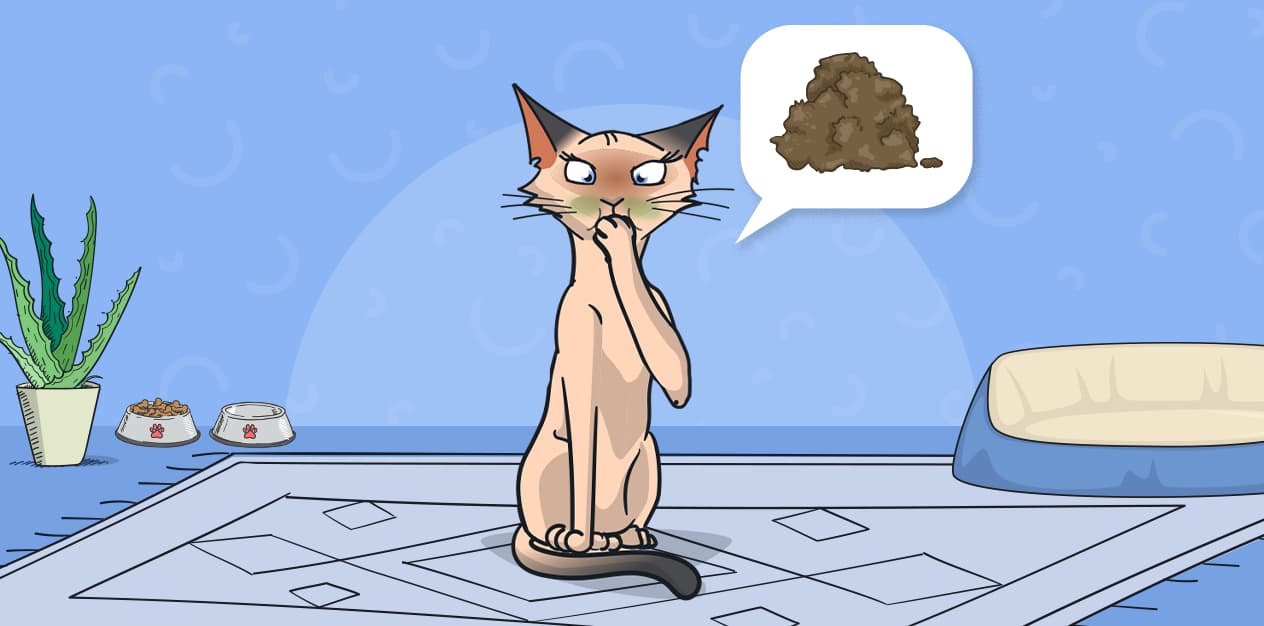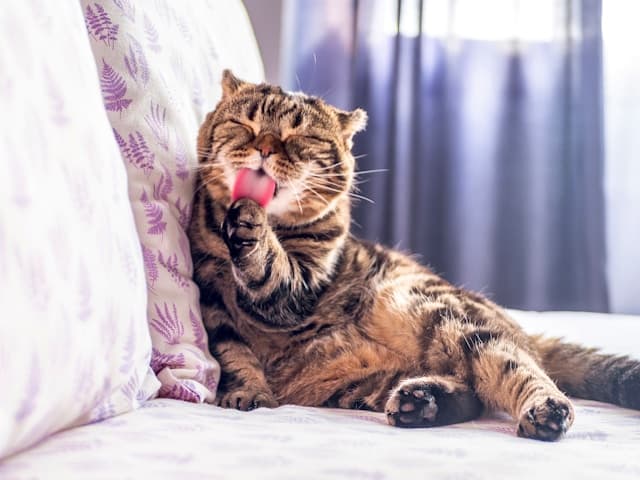
Cat Hairballs: Is There Reason to Panic?
Every cat owner’s dreams are haunted by the sound of their kitty sounding like they’re trying to hack up a Buick. But have you ever stopped to wonder what those hairballs actually are? And even more importantly, do they mean something’s wrong? We’ve got the hair-raising answers.

Health & Science
08/01/2024
3 min read
We’ll start off with a reassuring message: hairballs can be a normal part of a cat’s grooming routine. Despite the somewhat alarming sound and movement involved, there’s nothing to worry about in most cases. Yes, we said “most cases” – read on for the full breakdown.
So what actually are hairballs?
Cat owners are proud of their pets’ grooming habits, especially as it compares to dog parents. And it’s true, cats are relatively clean. The problem is that when cats lick themselves, they ingest loose hair, which might accumulate in their stomachs and form hairballs.
It’s hard to miss a cat’s hairball, which consists of, y’know, hair and digestive juices. Cats trying to expel a hairball may gag or act as if they’re dry-heaving, which can be alarming to those unaware of this behavior and its logic.
Which cat breeds expel hairballs more often?
- Long-haired cats: Cats with longer fur are more likely to experience frequent hairballs due to the hair they ingest while grooming. Breeds such as Persian, Maine Coon, Ragdoll, and Himalayan are good examples. Luckily, regular brushing can minimize the amount of fur finding its way into the cat’s stomach (and it’s good for bonding!)
- Older cats: Older cats are more prone to hairballs for several reasons, including a slower, more sensitive digestive system.
- Cats suffering from various skin disorders: Skin conditions or fleas may cause cats to focus more on self-grooming, which leads to more digested hair and—you guessed it—more hairballs. The same goes for cats suffering from anxiety.

Why it’s still important to keep tabs on them
Even though, like we said, this is normal cat behavior, owners should pay attention to hairballs, their frequency, and other signs or symptoms that may require medical care.
Frequent occurrences or initial appearance of hairballs can indicate several medical conditions, including skin allergies (often related to food), parasites, constipation, megacolon, nutritional deficiencies, and joint pain. A visit to the clinic is in order, with some cases requiring medication to assist in the expelling of digested hair.
Here’s how you can handle excessive hairballs in cats
- Treating digestive disorders: When necessary, laxatives and lubricants help hairballs pass through the digestive system.
- Nutritional adjustments: Food with high fiber content can help manage hairballs. Ensure your cat is drinking enough water.
- Regular grooming: Brushing your cat regularly to remove loose fur and even trimming its fur can reduce hairball formation.
One final word of caution
Hairballs can become problematic for cats, particularly if they occur frequently or grow large enough to cause obstructions. Owners should watch for telltale signs, such as frequent vomiting, especially with hairball material, or coughing and gagging without expelling a hairball, which may indicate an obstruction in the gastrointestinal tract. Cats experiencing hairball-related issues might also show discomfort, such as reduced appetite or lethargy. If symptoms persist or worsen, seeking veterinary attention promptly is crucial to prevent potential complications from intestinal blockages caused by hairballs.
As mentioned, most cases don’t require interference, as this is part of the cat’s natural behavior. Unless you’ve noticed any changes in frequency or other related issues, all you have to do is take a deep breath and clean up after your cat.
Animalia can’t clean up your cat’s hairballs for you, unfortunately, but we’ve got your back if they’re related to any medical complications. With Animalia’s cat health insurance, you’ll rest easy knowing no situation would be too hairy for the coverage you’re enjoying.



Get your pet insurance quote
Pet type
- Dog
- Cat
What is your pet's name?
Zip code





